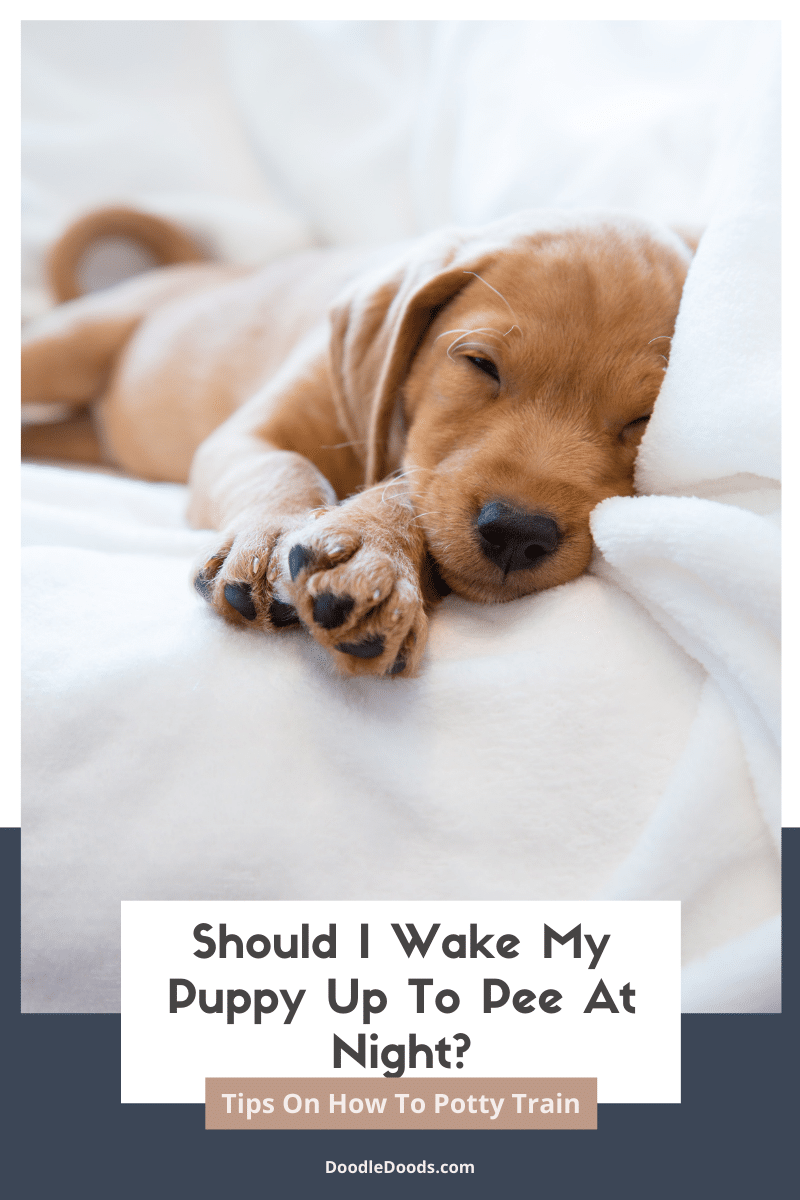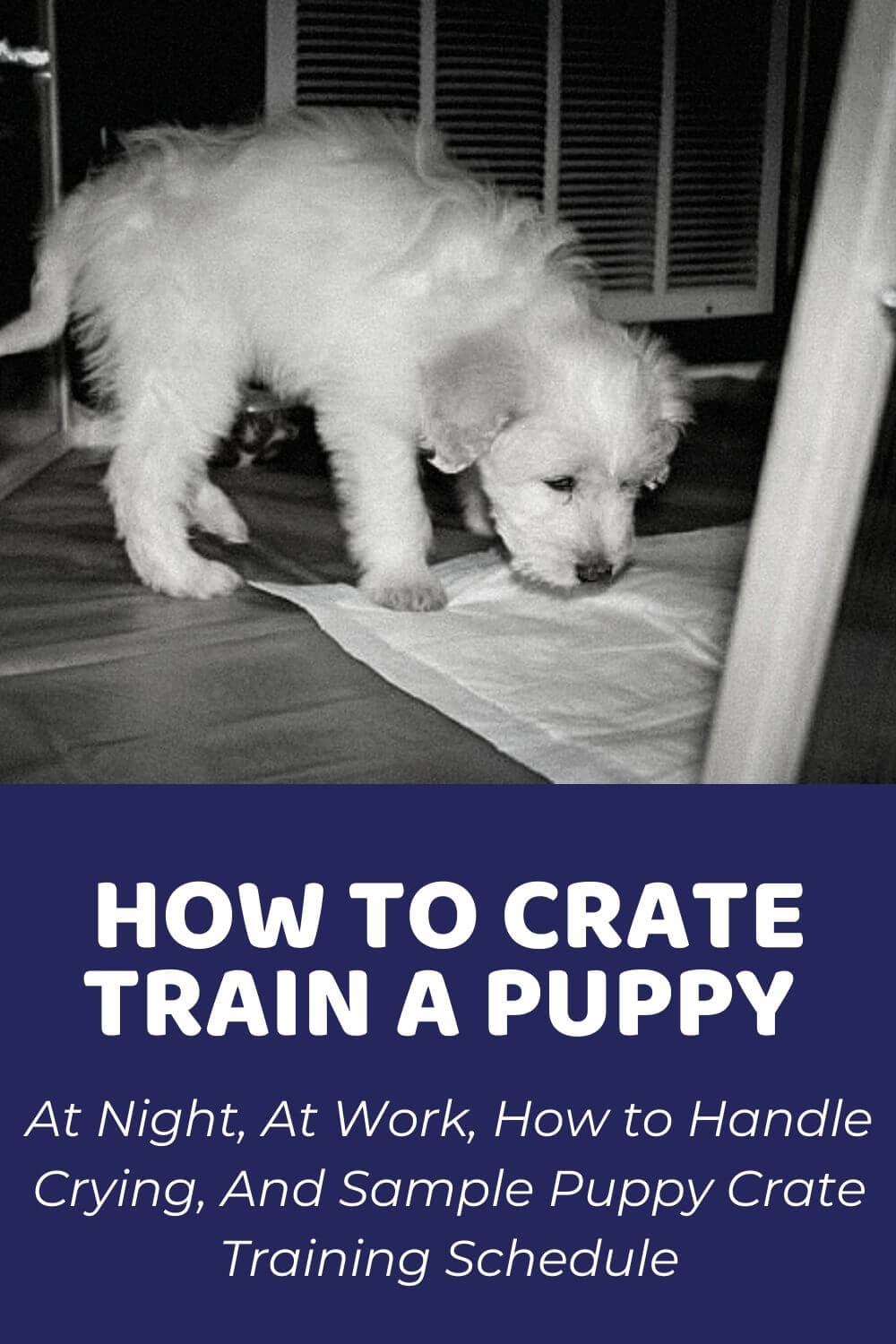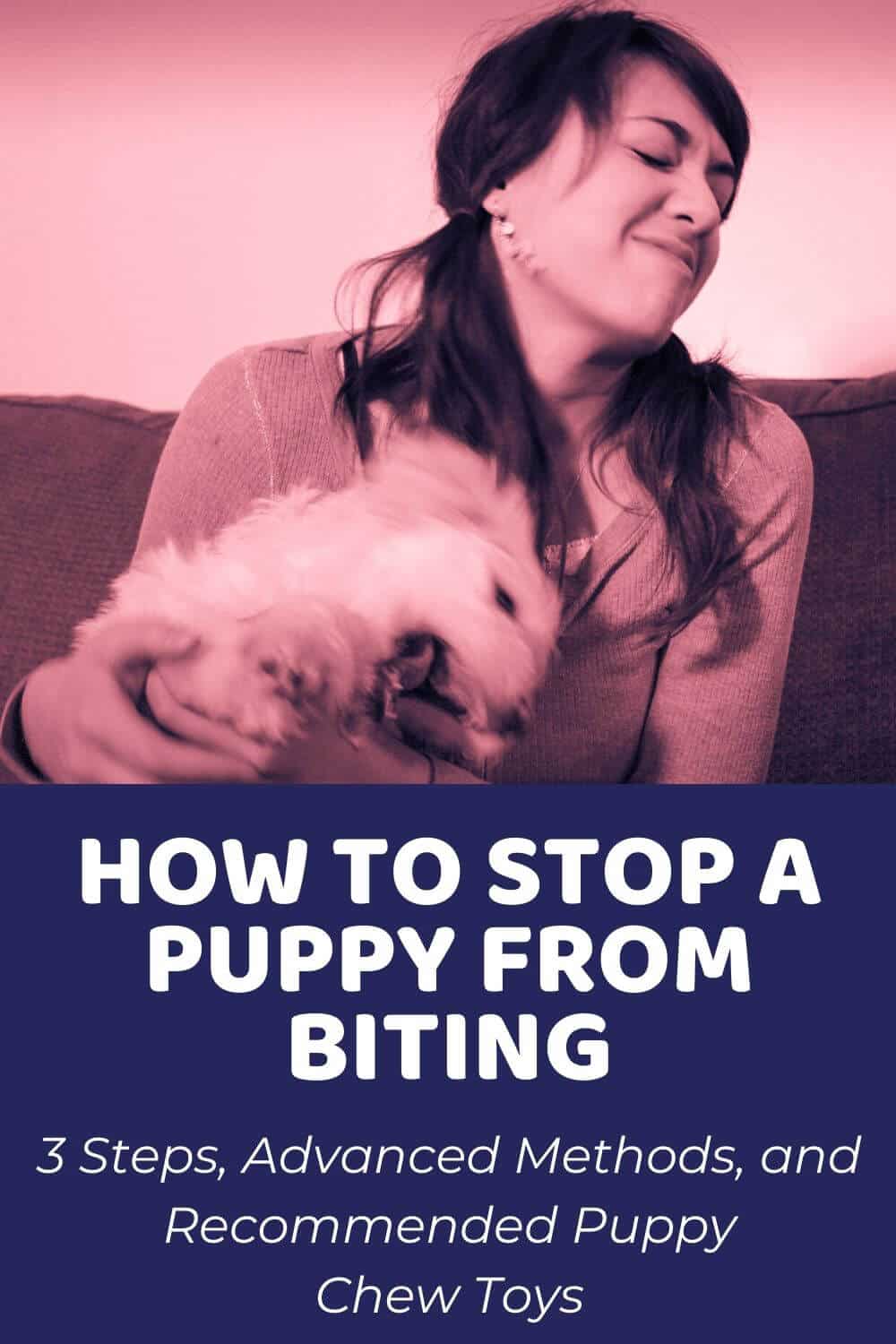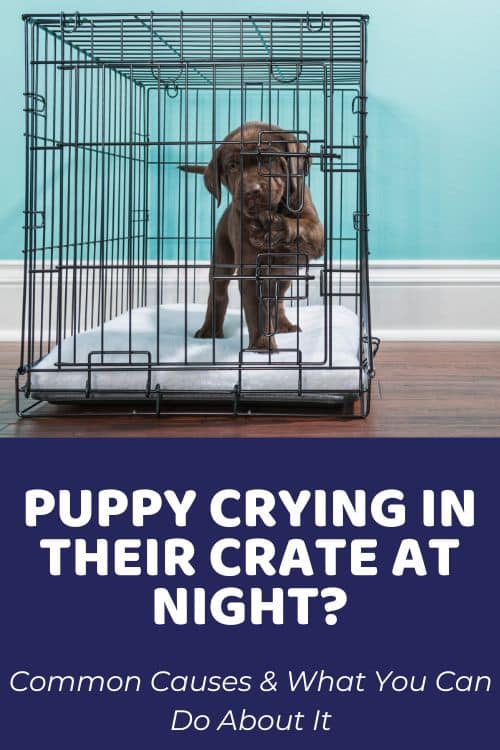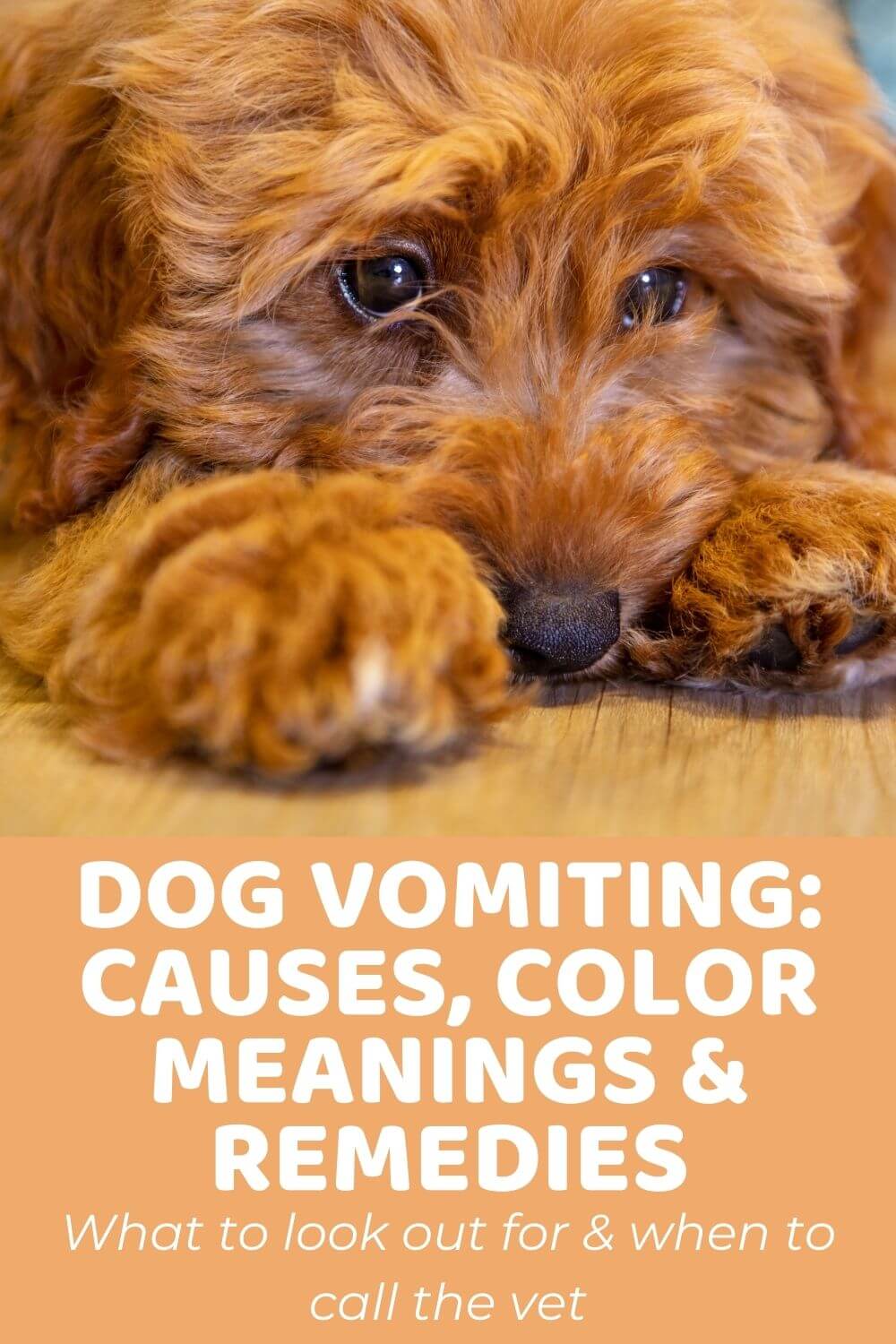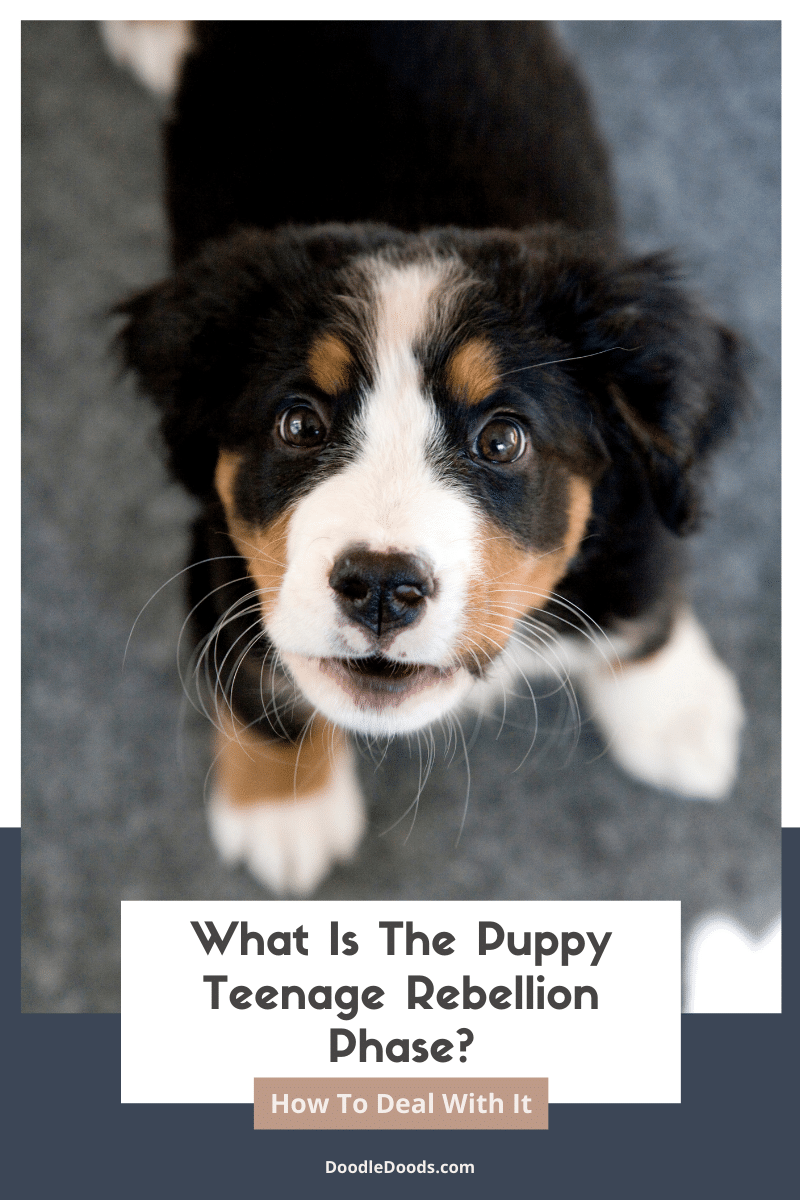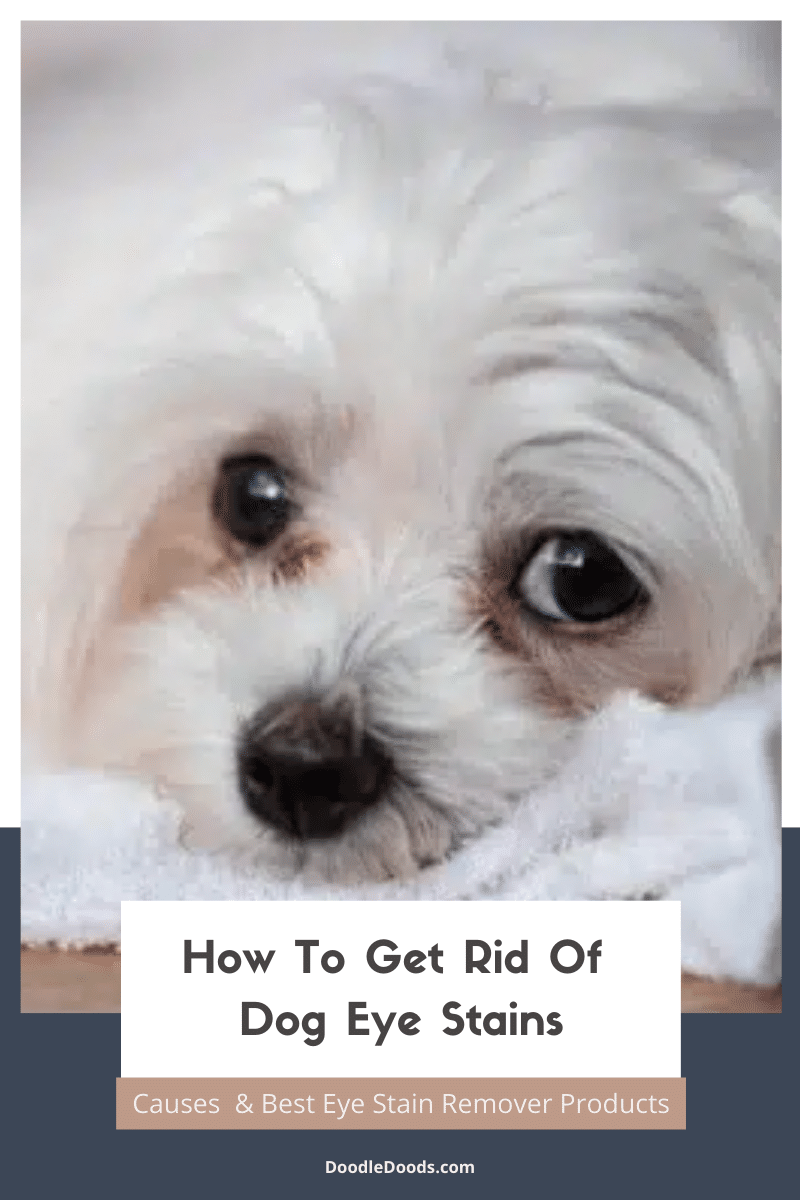For newbie pet parents, the whole puppy potty training thing can be a real palaver. Repeatedly having to clean up messes is super frustrating. You might hit a comfortable rhythm of getting your puppy out in the garden in plenty of time to do their stuff during the day, but what about the nighttime hours? Your puppy obviously needs to go pretty frequently, and you may find yourself asking should I wake my puppy up to pee at night?
Here we’ll take a look at what you should know about nighttime toilet training. We’ll also provide some ways you can help your puppy to be dry through the night.
Table of Contents
- Toilet Training Your Puppy: Things To Know
- How Often Do Puppies Need To Pee?
- 4 Ways To Help Your Puppy Make It Through The Night
- Should I Wake My Puppy To Pee – Ever?
- What To Do If Your Puppy Has An Accident
- Should I Wake My Puppy Up To Pee? Frequently Asked Questions About Puppy Toilet Training
- Final Thought
Toilet Training Your Puppy: Things To Know
While the most significant portion of toilet training can be accomplished in those early weeks, it will likely be several months before you will be able to call your puppy fully house-trained. You might even find that your adolescent dog (between one and two years old) will still have the occasional accident, especially when over-excited.
During this time, you will need to be both patient and consistent, taking your pooch out to the designated spot in the garden multiple times a day until they start to get the hang of things. When they do, give them plenty of praise and maybe even a treat or two to reinforce the habit. It’s also good to have a suitable command to call upon.
Likely one of the biggest issues you’ll run into, however, is dealing with your puppy’s toileting needs at night when you’d far rather be sleeping than standing out in the cold waiting for your pooch to do their stuff. Happily, this stage will not last forever, and there are a few ways to get around the situation so you can still get your beauty sleep.
How Often Do Puppies Need To Pee?
While adult dogs can hold their bladder overnight for between 10 and 12 hours, the same is certainly not true of puppies. In fact, puppies don’t have control over their bladder until they are at least four months of age. Now, it goes without saying that the younger your puppy, the more frequently you’ll need to take them out to the toilet. Smaller breeds also tend to need to go a little more than bigger ones due to their littler bladders.
With that in mind, a good rule of thumb is to assume your puppy can hold their pee an additional hour per month of their age. So, a one month puppy should be taken out every hour, a two-month-old every two hours, and so on. Around four months, dogs tend to gain some control over the process, but your pal still won’t be able to hold it in all day – and possibly not all night either.
If your puppy does wake up in the middle of the night needing to go to potty, depending on their age and how far along they are in their toilet training, they will either simply find a likely spot in the room they are in or make use of their day time signals and cry and whine to be let out to do their business. Either way, it’s not ideal for you. That’s why it’s good to have some measures put in place to prevent either of these scenarios.
4 Ways To Help Your Puppy Make It Through The Night
A combination of the following should allow you to continue toilet training your puppy through the night with minimum disruption to your sleep.
1) Set Up A Feeding/Toileting Schedule
Dogs are creatures of habit, meaning the sooner they adjust to when things happen and when they should be done, the better. That’s why having a schedule in place from day one is a good idea. Be sure to feed and water your puppy in good time to allow them to (ahem) get everything out of their system before they go down for bed. Then put them out to potty right before you retire for the night and wait out there until you are sure they go. Then when you get up in the morning, make getting your puppy out for a pee your top priority. They will soon come to learn that this is the way things should be.
In fact, getting your puppy on this schedule right away will likely mean that you don’t have to wait as long for them to start making it through the night (once they have at least a rudimentary control of things, of course). They will be more likely to peacefully sleep through, which, happily for you, means you can too.
2) Remove Their Food and Water
Unless your puppy is particularly young or has health issues that require them to have regular access to food and water, it’s a good idea to take these away overnight and maybe even a couple of hours before you put them down to bed. As both eating and drinking prompt the need for the toilet, this should help with holding things in a little longer. Just be sure to replace both of these first thing in the morning so your very young puppy is not going too long without either. As you likely already now, puppies need to be fed little but pretty often.
3) Pop Them In A Crate
Many experienced dog owners swear by crate training their puppy from the very start. Alongside giving your hound a place of their very own to retreat to and relax when needed, it also gives them a great incentive to stay dry through the night when they can.
The crate itself appeals to your pal’s natural “den animal” instincts, which will provide them with both comfort and security while they sleep. Beyond that, as canines are naturally reluctant to soil the space where they kip unless, of course, they are forced into it, a crate will provide extra motivation for holding everything in.
The tricky side of using a crate is that young puppies who are not able to remain dry through the night will naturally struggle not to soil their bed, and once they get into the habit of doing this, then all will be lost. Therefore, until your puppy is a little older, you might consider placing the crate in an easy-to-clean room or restricted area using a puppy playpen setup, leaving the door open, and making use of puppy pads (see below).
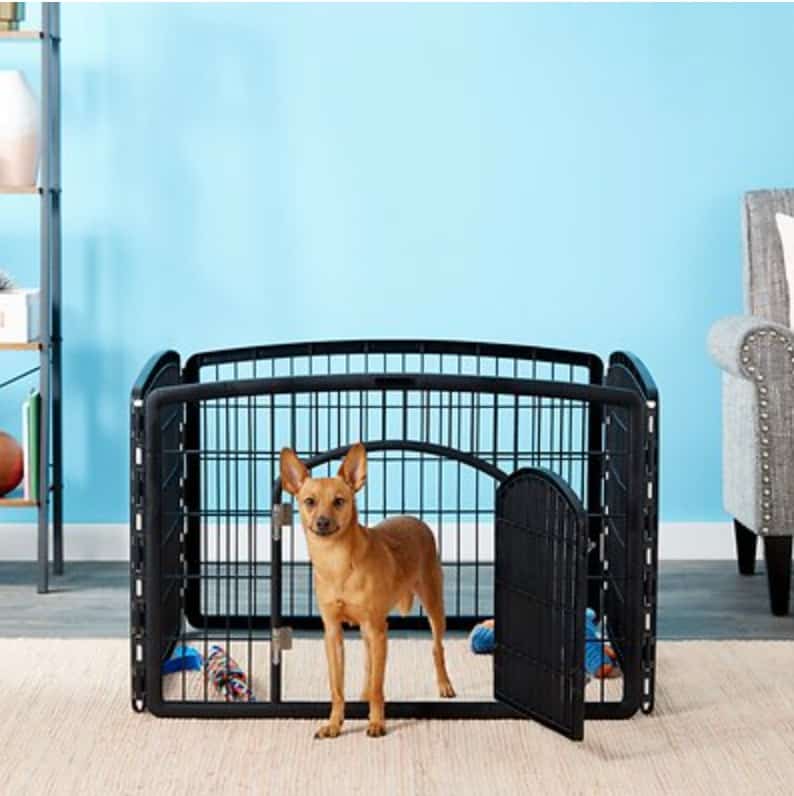
4) Put Down Potty Pads
While you can’t expect your very young puppy to be able to hold it in all through the night, chances are you won’t want to be getting up every hour or so to take them outside. An alternative solution to this is potty pads. A million times better than putting down paper, the right potty pads are fast-drying, super-absorbent, and can help keep your floors clean.
Just be aware that you will have to teach your new puppy to use potty pads in much the same way you are training them to do their stuff outside. So you will have to spend a little time placing them on the pads to do their stuff. Hopefully, once you have repeated this a few times, they should get the hang of it. It helps if you leave a used pad out the first few nights, as dogs tend to get into the routine of returning to the same spot each time. They will smell what’s already there and should take the hint.
Should I Wake My Puppy To Pee – Ever?
Puppies really don’t need to be woken up to go pee. Their bladder should alert them to a pressing need with enough time to do something about it. That being said, certain health conditions, such as kidney issues or a urinary tract infection, may interfere with this process. So if your pup is currently dealing with any of these, you will need to wake them and take them out. This is best taken under the advisement of a vet.
You’ll also want to wake your puppy up to pee if you are headed out somewhere and need to put them in their crate for a period of time while you are gone. Aside from that, though, it’s best to, as they say, let sleeping dogs lie.
This is doubly the case when it comes to nights. As we touched on above, canines are pretty scheduled creatures, and anything that happens regularly quickly becomes a habit that can be tough to break. So if you are waking your puppy up to pee, they will become used to getting up in the middle of the night to pee. If, on the other hand, you leave them to sleep through as much of the night as they can manage, they will more quickly develop this sleep schedule just as soon as their body adjusts to allow it.
However, if your puppy is showing signs of needing to go in the night – crying and scratching to be let out – and you haven’t made any provisions for them, such as toilet pads, then you definitely should take them outside. You don’t want them becoming accustomed to relieving themselves either in their house or in their crate after all.
Just keep in mind that if your puppy is crying out to you in the night, this doesn’t necessarily mean that they need to go potty. It may be the case that he or she is simply looking for a bit of attention, or, if in a different room, they might be afraid of something. Puppies also sometimes bark or whine in their sleep – this is to do with their dream cycles. You don’t need to disturb them during this time.
What To Do If Your Puppy Has An Accident
In those early few weeks (and often every now and again for a few months beyond that), accidents will happen. This is inevitable, and there is simply no getting around it. That’s why, while you’re still working on toilet training your puppy, and if you haven’t opted for a crate, it’s a good idea to keep them confined to small (easy to clean) areas of your house when you are not around to take them out when it looks like they need to go. And the potty pads will come in handy for this too.
You will likely still find yourself dealing with unpleasantness though on the floor, carpet, and furniture, especially when your puppy is a baby. It’s vital that you never get cross with them about this, however. In fact, punishment of any kind is never recommended for any behavioral issue. This is mainly because your dog won’t understand what it’s all about, and it will more than likely just end up harming the relationship the two of you have. It could even make your puppy anxious and afraid.
That being said, if you catch your puppy in the act, you might try a firm clap to get their attention and a strong command such as “no” before you shift them over to a pad or take them outdoors. In this way, your puppy can begin to understand the boundaries of their behavior. If you don’t make it in time, you might want to read up on how to clean urine out of your carpets and furniture. Puppy pee can smell very strongly, so it takes a more specialized approach to remove it.
Should I Wake My Puppy Up To Pee? Frequently Asked Questions About Puppy Toilet Training
It’s not a good idea to wake a sleeping puppy to pee in the daytime or at night. Usually, their bladder will wake your puppy when it’s time, so they will be able to let you know in good time when they need to go. If you get into the habit of waking your puppy through the night, then you will have issues later on when this habit persists.
How long puppies can hold their pee generally depends on their age (although breed size can also be a factor). In general, you can’t expect a one-month-old puppy to hold it longer than an hour, a two-month-old longer than two hours, or a three-month-old longer than three hours. At four months, most dogs have better control over their bladder but will still be unlikely to last all day, even if they may be able to make it through the night.
It’s unlikely your young puppy will be able to hold their poop any longer than their pee, as they are yet to develop this kind of control over their digestive system. Keep in mind that you will also be feeding your dog on a very regular basis at this stage, so there will be plenty (ahem) moving through. Factor in an hour for every month of your puppy’s age.
Final Thought
While it may be tempting to wake your sleeping puppy up at night to take them out to the toilet and save you the effort of cleaning up their little accidents, in actuality, this can often do more harm than good. Unless your puppy has a specific medical condition that makes it tricky for them to know when they need to go, it’s best to let them sleep while they can to get into the habit of sleeping through the night.
That being said, if your puppy is waking you to take them out, that’s a whole other story. Either way, there are plenty of things you can do to speed up the night toilet training situation rather than asking should I wake my puppy up to pee. Once your dog is old enough to control their bladder, and provisions, such as puppy pads, that you can put in place in the meantime to save you a lot of work and lost sleep.
Want to Learn
DIY Doodle Grooming?
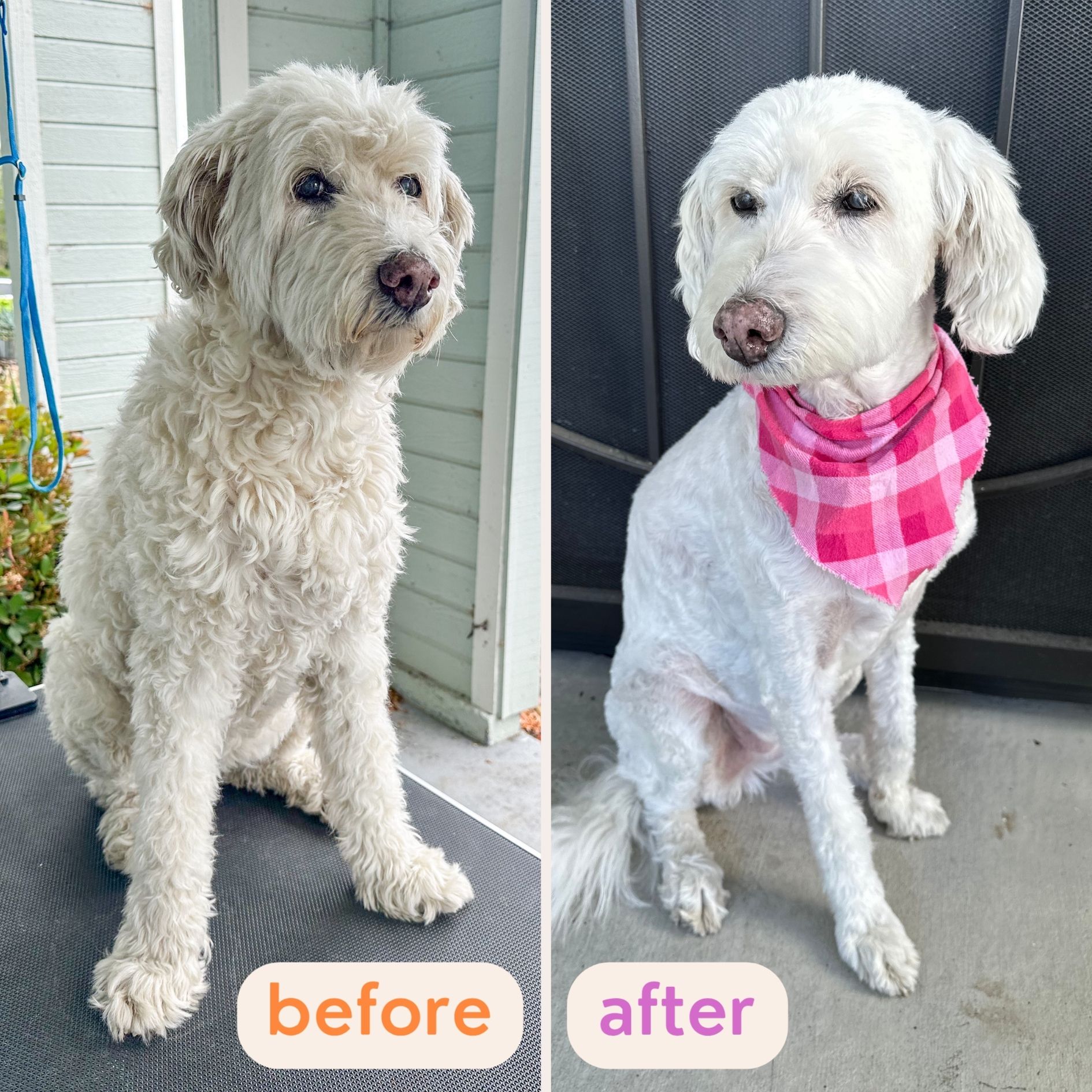
 “Every concern and question I had now has clear, practical solutions.” – Paula D.
“Every concern and question I had now has clear, practical solutions.” – Paula D.
 “These lessons have provided tremendous amounts of information.” – Steve B.
“These lessons have provided tremendous amounts of information.” – Steve B.
 “Buy the course and complain about how easy it is!” – Chris S.
“Buy the course and complain about how easy it is!” – Chris S.
Learn How To Groom Your Doodle At Home…
Safely…And Without Confusion:

